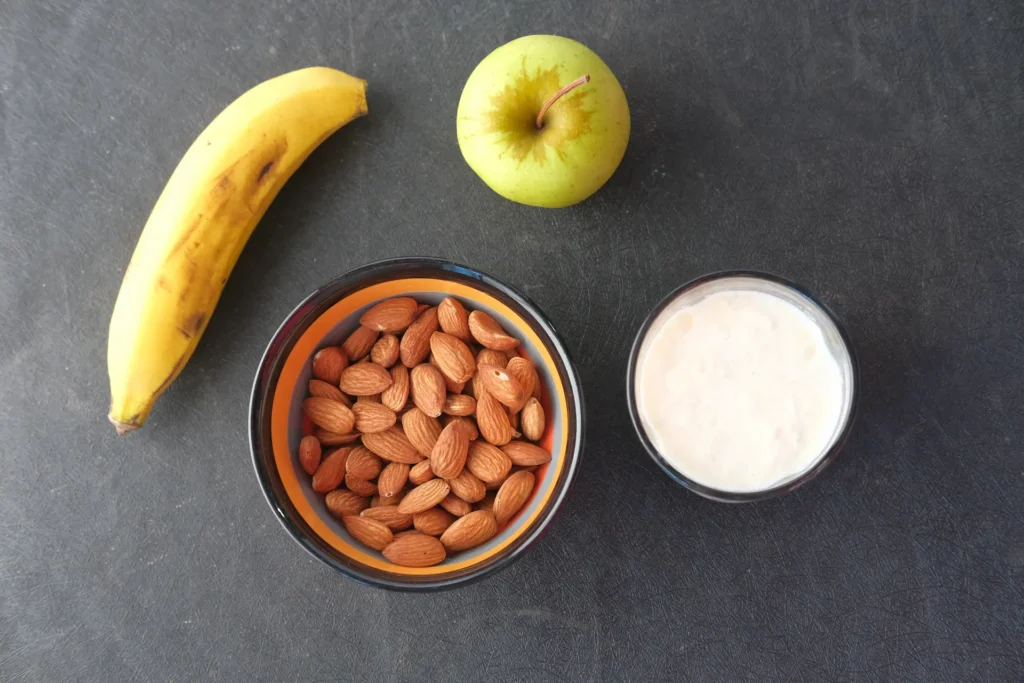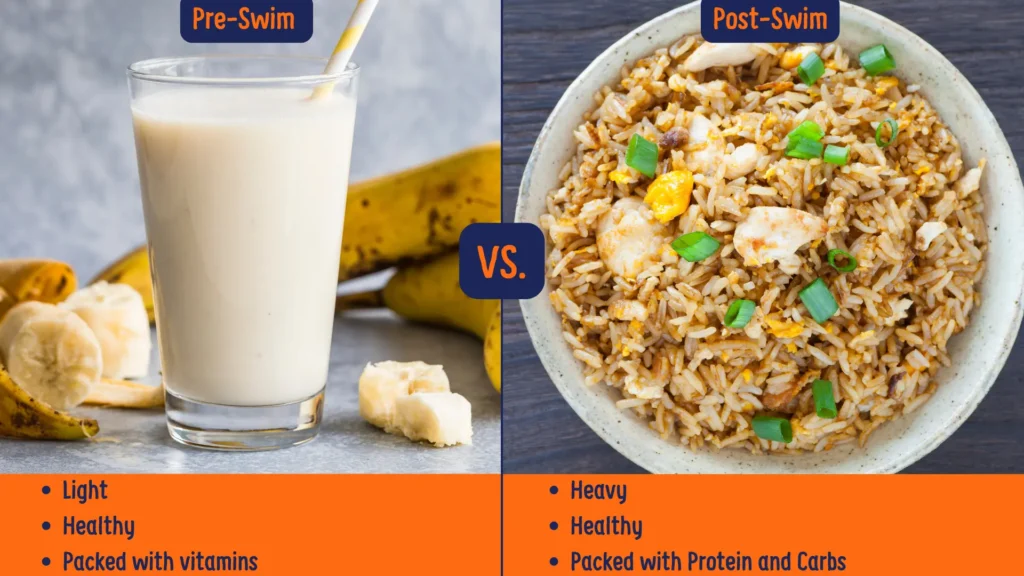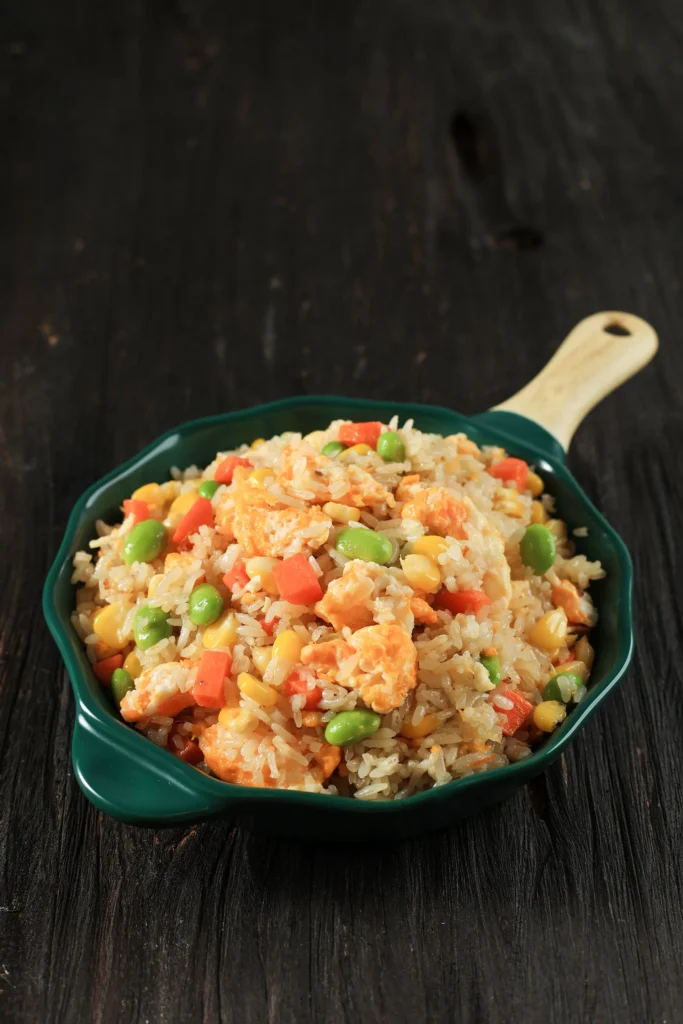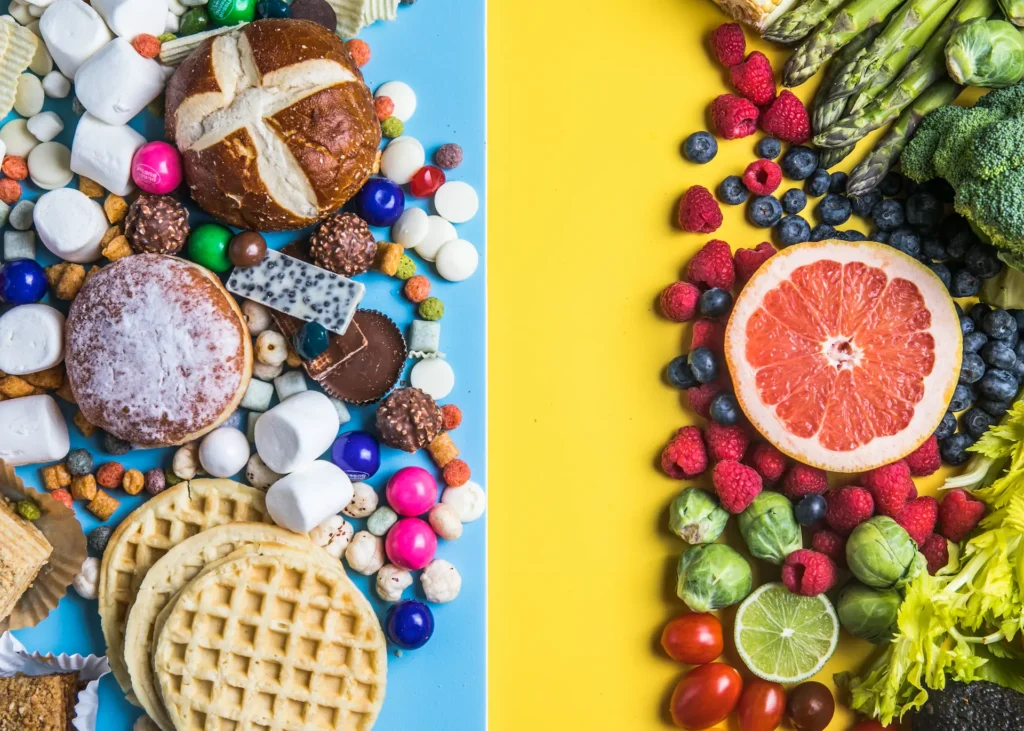Many young swimmers feel drained of energy after a swim—or sometimes even halfway through a lesson! As parents, we’ve all been there—hearing “Mum, Dad, I’m starving!” right after they get out of the pool. Did you know that nutrition can play a major role in their performance and recovery?
Studies show that swimmers burn approximately 500-700 calories per hour, even at moderate intensity, so the right snacks before and after their swim can make all the difference. With a little planning, you can help keep their energy steady without relying on quick fixes from vending machines.
What to Eat Before Swimming (and When to Eat It)
Timing and portion size are key when it comes to pre-swim snacks. Eating too close to the lesson or choosing heavy foods can lead to discomfort in the water, while a balanced snack eaten about an hour before will provide the energy they need to feel strong and focused in the pool.
Timing Tips
Ideally, aim to give them a snack around 60 minutes before their lesson. Research suggests that eating one to two hours before exercise can improve stamina and reduce fatigue, which means your child will have the energy they need for their swim.
Pre-Swim Snack Ideas
Choose easily digestible foods that won’t make them feel sluggish. Here are some quick, balanced options:
- Wholegrain bread with a spread of nut butter
- A banana or apple
- Yoghurt
- Unsalted nuts
- A light smoothie with fruit and a bit of milk or yoghurt
- Oatmeal with a sprinkle of berries

These snacks offer a balanced mix of carbs and proteins, giving a steady release of energy without weighing them down. Experts recommend around 30-60 grams of carbohydrates in a pre-workout snack to optimise energy levels for active children.
What to Eat After Swimming (and When to Eat It)
After a swim, your child’s body needs to refuel, and they might feel completely wiped out. Research shows that the 30-60 minute window after exercise is critical for recovery, so try to provide a nutritious meal or snack within an hour after they get out of the pool.
Post-Swim Meal Ideas
A post-swim meal should be more filling and include a good balance of protein and carbohydrates. This helps restore their energy and support muscle recovery. Here are a few easy options:
- Turkey or chicken sandwich with wholegrain bread: Protein from the meat and complex carbs from the bread help refuel energy and support muscle recovery.
- Salmon with rice and vegetables: Packed with omega-3s, protein, and carbs, this meal is nutritious and filling.
- Pasta with chicken and vegetables: A balanced meal with carbs and protein to help replenish energy.
- A smoothie with milk, banana, and peanut butter: Quick to make and provides a balance of proteins, carbs, and healthy fats.
Adding fruits and vegetables to their meal helps ensure they get essential vitamins and minerals. Children who consume balanced meals with vegetables and protein perform better in physical activities and have higher energy levels throughout the day.

Remember to Rehydrate
One thing kids often forget is how much they need to drink after swimming. Even though they’re in the water, they’re still sweating and losing fluids. Studies estimate that swimmers can lose up to a litre of water per hour during intense sessions, which means rehydration is crucial to help their muscles recover and keep energy levels steady. Encourage them to sip water before, during, and after their lesson to stay fully hydrated.
Understanding Carbs vs. Proteins: The Basics
Carbohydrates and proteins each play a crucial role in your child’s energy and recovery after swimming. Here’s a simple breakdown:
- Carbohydrates: Carbs are like quick fuel, giving an immediate energy boost. They are especially useful in pre-swim snacks and also help replenish energy stores after the lesson. The British Dietetic Association recommends that 50-60% of a child’s daily energy intake should come from carbohydrates, particularly when they’re engaging in physical activities like swimming.
- Proteins: Protein supports muscle recovery and growth, especially important after full-body activities like swimming. Experts recommend around 15-20 grams of protein after exercise to optimise recovery in young athletes.
By balancing carbs and proteins in their meals and snacks, you’ll ensure they get the energy boost they need to recover and keep going for the rest of the day.

What to Avoid
Knowing what not to feed them can be just as helpful! Here are a few things to keep in mind:
- Big meals too close to the lesson: Eating a large meal right before swimming can make them feel bloated and sluggish. Studies indicate that large meals can decrease performance and increase the risk of stomach discomfort. Instead, stick to light snacks about an hour before swimming.
- Sugary snacks: Foods high in sugar may provide a quick burst of energy, but that “sugar high” often comes with a crash soon after. A 2018 study found that children consuming high-sugar snacks before physical activity experienced energy dips and mood swings within an hour. Instead, opt for nutrient-rich options like fruit, nuts, or whole grains, which offer sustained energy without the sudden drop.
- Skipping a post-swim snack: Skipping food after swimming can leave them feeling drained and irritable. A balanced snack or meal afterwards helps them recover, keeping their energy levels steady for other activities. Research shows that children who don’t eat after exercise may experience delayed recovery and reduced stamina in subsequent activities.

Final Thoughts
Ensuring your child gets the right nutrition before and after a swim isn’t always easy, but it can make a big difference in their energy levels, enjoyment, and recovery. With simple, balanced choices, you can help them stay focused and energised, ready to dive back into the pool—or into the rest of their day!

